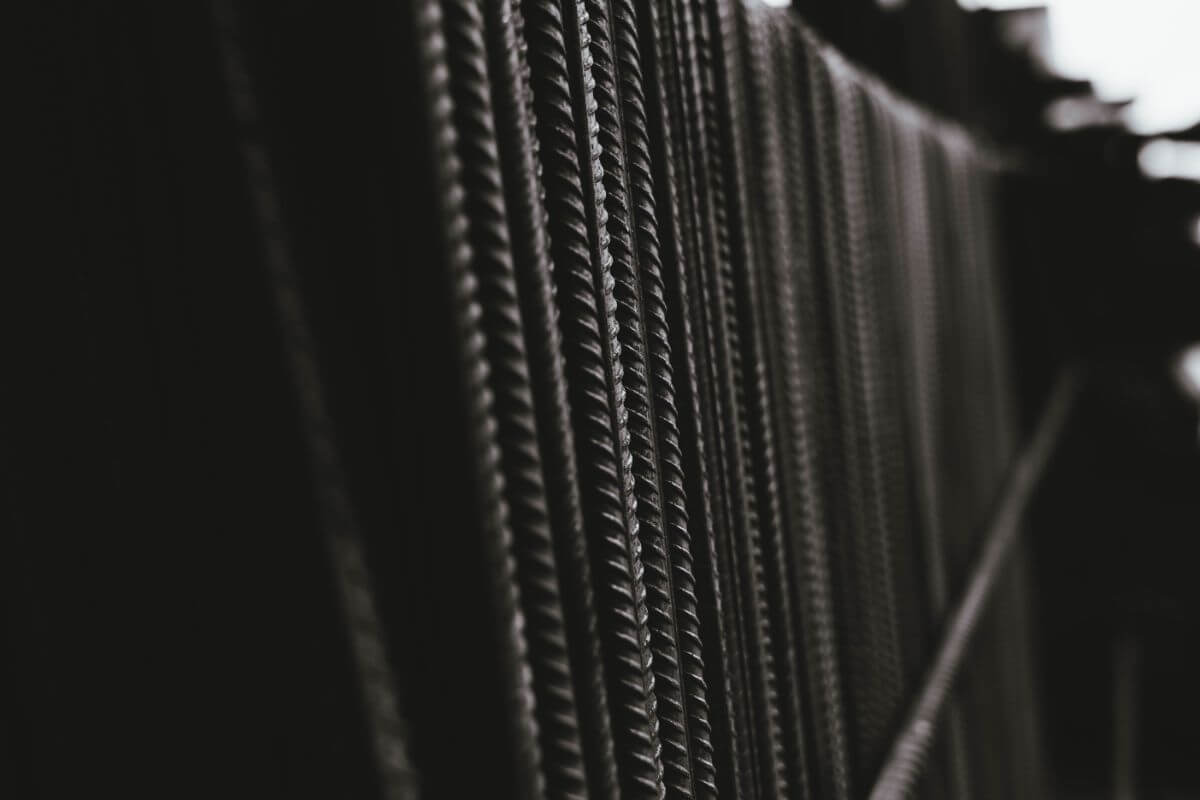Deformed bars, also known as rebar or kabilya in the Philippines, is a product you’ll often see on construction sites. In fact, you might have seen it yourself, combined with concrete for pillars and foundations.
It’s used as an alternative for round rebar and is often used in tandem with concrete for building constructions. But what are deformed bars, and how are they used? In this article, we look closer into everything you need to know about deformed bars in the Philippines.
What is a Deformed Bar?
A deformed bar is one of the most common materials used for reinforcement for construction projects. It’s often made from steel — specifically carbon steel — but it comes in many different forms.
They feature slender cylindrical frames, which sport ridges and indentations all around its exterior. This enhances some of its reinforcement properties, which we will get into later on.
Deformed bars in the Philippines are most often seen in construction sites, as it is the preferred reinforcement material for setting foundations, as well as creating support for concrete structures. Most common applications include creating houses and buildings, for prefabricated beams, reinforced concrete columns and slabs, and even cages.
How are Deformed Bars Used?

We mentioned that deformed bars have an indented exterior — this serves a very important purpose. This creates a rough surface that enhances the bond it creates when combined with concrete.
The indented surface applies tension between the rebar and the concrete. This is ideal, as this then improves the tensile strength of the concrete.
In short, deformed bars are used to increase the strength, durability, and resistance of concrete. This is necessary because, despite its impressive compressive strength, concrete has poor tensile strength. Meaning, concrete will easily fall apart when it is pulled or stretched — which a deformed bar helps to resolve.
What are the Types of Deformed Bars?
As we mentioned, several different kinds of deformed bars are available on the market. These include:
- Carbon Steel — these are the most common type of deformed bars that you can find at construction sites. They are highly affordable and readily available. However, these are most prone to rust and corrosion.
- Welded Wire Fabric — these are less common, and usually applied for road and canal repairs. It can also be used for simple wall structures. It is best applied on well-compacted ground.
- Sheet Metal Reinforcing Bars — this is ideal for roof repairs, or structures that need extra reinforcement. It is also less likely to experience rust and corrosion.
- Epoxy-Coated Rebars — this is the preferred type for applications that are situated near water. They are very durable and reliable. However, they are more expensive, and harder to find.
- Stainless Steel Rebars — this type is great for applications that need extra reinforcement, and is often used as an alternative to carbon steel rebar. However, the same as epoxy-coated ones, these are more pricey.
- Galvanized Rebars — another great option for construction as they are very durable. They are applicable in areas with water and have a strong resistance to rust and corrosion.
What are the Advantages of Using Deformed Bar?
Though there are many different kinds of deformed bars, this material in general offers the following advantages:
- Durability — deformed bars have high tensile strength. They also bond extremely well with concrete, allowing them to properly reinforce it for years. Deformed bars also offer high-fatigue resistance.
- Versatility — deformed bars can be used in just about any concrete structure. This includes residential, commercial, and industrial buildings, as well as infrastructure.
- Corrosion-resistance — as deformed bars are very durable, they can adequately withstand both mechanical stress and moisture (two of the main factors of corrosion). Additionally, deformed bars can also withstand extreme temperatures and weather.
- Convenience — deformed bars are extremely easy to manufacture, and their materials are generally easy to source. This makes it a widely available product. And, deformed bars are light and slender, making them easy to install and maintain.
Where Can I Order Deformed Bars in the Philippines?

Now that you know why deformed bars are crucial materials for construction projects, you may be interested in knowing where to get them.
When it comes to producing and supplying high-quality construction materials, Regan Industrial Sales, Inc. is the right company to partner with. With decades of experience in the business, we have the skills and know-how needed to produce the deformed bars you’re looking for. And, with our wide array of materials offered, we can become your one-stop shop for all your construction needs!
Interested in learning more? Contact us here to send an inquiry, or to request a quotation.
Key Takeaway
This in-depth look into deformed bars in the Philippines showed how versatile and useful this product is. To summarize, a deformed bar is a kind of reinforcing material used for concrete structures. It produces a strong bond that allows the concrete to become stronger than ever. And, it comes in a variety of forms, allowing it to be used in a variety of applications.
If you’re interested in ordering quality, trusted deformed bars for your project, let Regan Industrial Sales, Inc. know. Message us today, and our team will get back to you soon!







